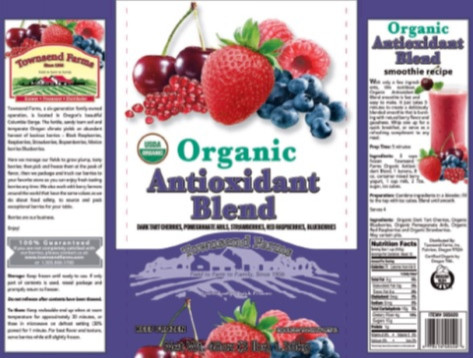Frozen Berry Recall: Hepatitis A Outbreak Linked To Frozen Berry Mix Infects 87 People

The Centers for Disease Control and Prevention said Tuesday that an outbreak of hepatitis A linked to a frozen berry mix sold at Costco has infected to 87 people across eight states, including California Colorado, Hawaii, Nevada, New Mexico, Oregon, Utah and Washington.
The outbreak made headlines last week when Townsend Farms of Fairview, Ore., recalled its frozen Organic Antioxidant Blend, which was packaged under the Townsend Farms label at Costco and under the Harris Teeter brand at other stores.
Craig Wilson, director of food safety at Costco, told reporters that the store is providing vaccinations for people who ate the berries within the last two weeks and is reimbursing others who have gotten the vaccine outside the store. The store has contacted about 240,000 people who purchased the berries at one of their stores, Wilson said. The company knows who bought the berries because purchases are linked to a membership card that customers present when they check out.
While the FDA is investigating the cause of the outbreak, the CDC did say that this strain of hepatitis is rarely seen in North or South America but rather is found in the North Africa and Middle East regions. Townsend Farms has said the frozen organic blend bag includes pomegranate seeds from Turkey.
Hepatitis A is an acute infectious disease of the liver caused by an RNA virus transmitted person-to-person by ingestion of contaminated food or water or through direct contact with an infectious person. Symptoms include fatigue, abdominal pain, jaundice, abnormal liver tests, dark urine and pale stool.
Illness usually occurs within 15 to 50 days of exposure to the hepatitis A virus, but vaccination can prevent illness if given within two weeks of contact.
Lawsuits have already been filed against Townsend Farms in California, Hawaii and Washington state, with more expected in the other affected states, the AP reports.
The same genotype of hepatitis A was identified in an outbreak in Europe linked to frozen berries this year, the CDC said, and a 2012 outbreak in British Columbia related to a frozen berry blend with pomegranate seeds from Egypt. The agency said there is no evidence the outbreaks are related.
© Copyright IBTimes 2024. All rights reserved.





















